
Why Cyber-Criminals Target Android Devices
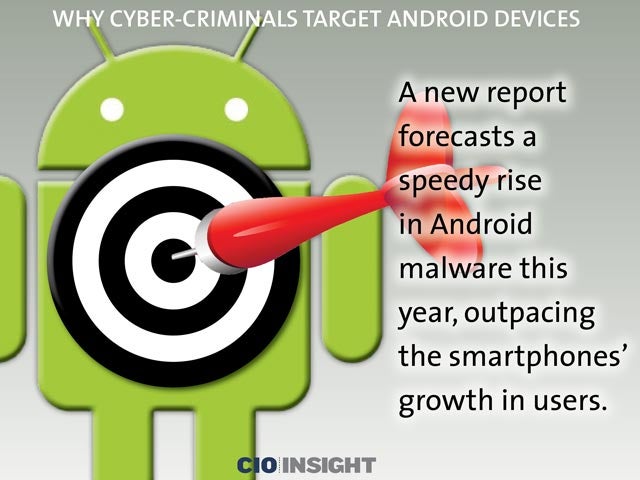 Why Cyber-Criminals Target Android Devices
Why Cyber-Criminals Target Android Devices
A new report forecasts a speedy rise in Android malware this year, outpacing the smartphones’ growth in users.
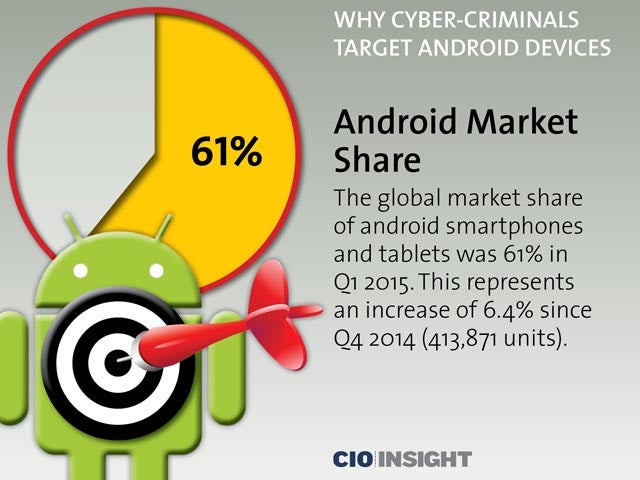 Android Market Share
Android Market Share
The global market share of android smartphones and tablets was 61% in Q1 2015. This represents an increase of 6.4% since Q4 2014 (413,871 units).
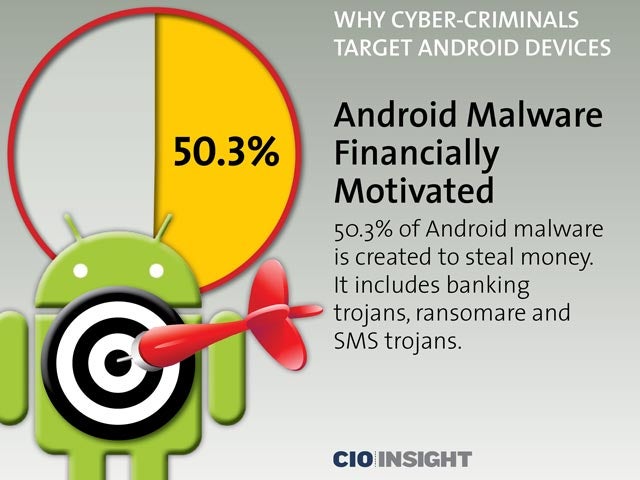 Android Malware Financially Motivated
Android Malware Financially Motivated
50.3% of Android malware is created to steal money. It includes banking trojans, ransomare and SMS trojans.
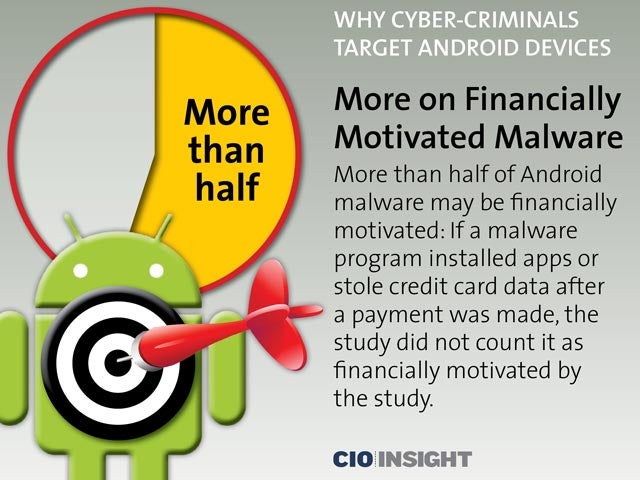 More on Financially Motivated Malware
More on Financially Motivated Malware
More than half of Android malware may be financially motivated: If a malware program installed apps or stole credit card data after a payment was made, the study did not count it as financially motivated by the study.
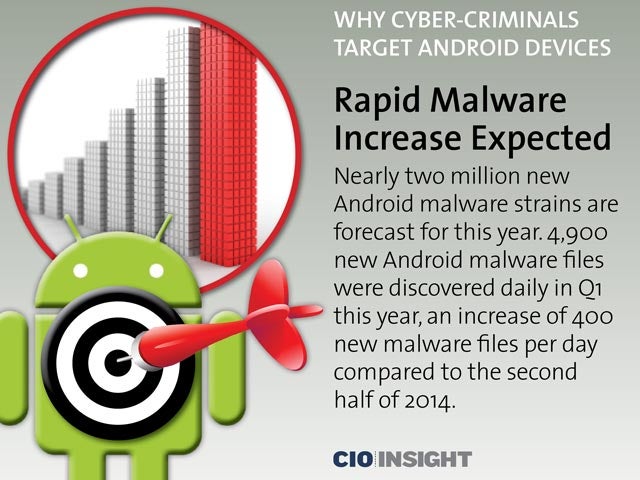 Rapid Malware Increase Expected
Rapid Malware Increase Expected
Nearly two million new Android malware strains are forecast for this year. 4,900 new Android malware files were discovered daily in Q1 this year, an increase of 400 new malware files per day compared to the second half of 2014.
 IoT Growth to Spur Malware
IoT Growth to Spur Malware
Mobile devices will become the focus of attacks with the propagation of the Internet of things; for example, fitness apps and trackers will be targeted and data stolen if it is not properly encrypted.
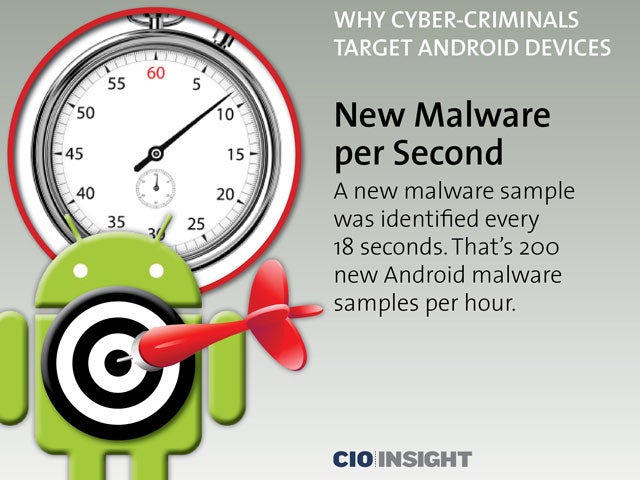 New Malware per Second
New Malware per Second
A new malware sample was identified every 18 seconds. That’s 200 new Android malware samples per hour.
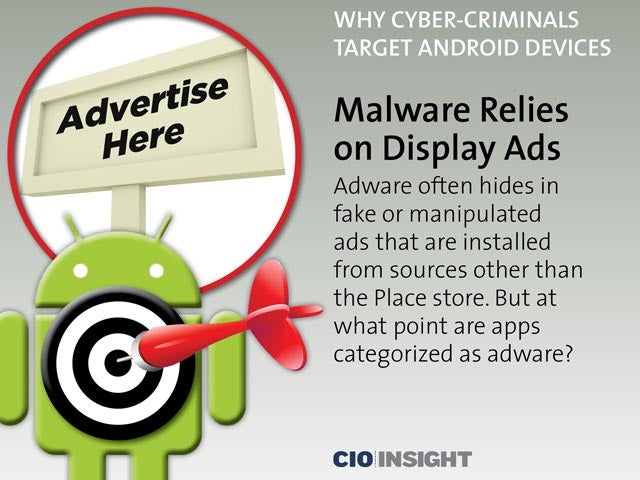 Malware Relies on Display Ads
Malware Relies on Display Ads
Adware often hides in fake or manipulated ads that are installed from sources other than the Place store. But at what point are apps categorized as adware?
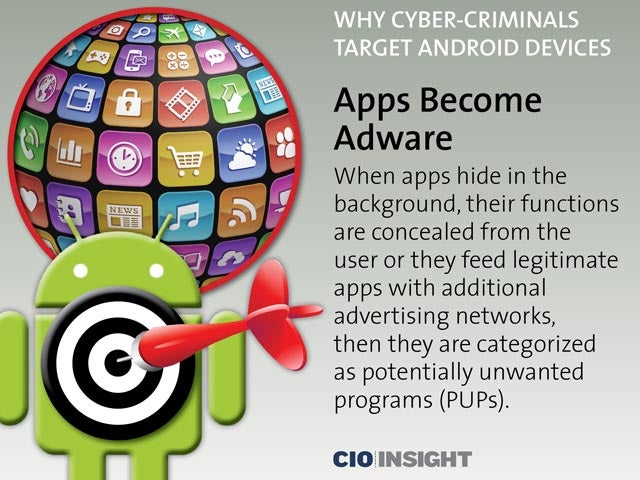 Apps Become Adware
Apps Become Adware
When apps hide in the background, their functions are concealed from the user or they feed legitimate apps with additional advertising networks, then they are categorized as potentially unwanted programs (PUPs).
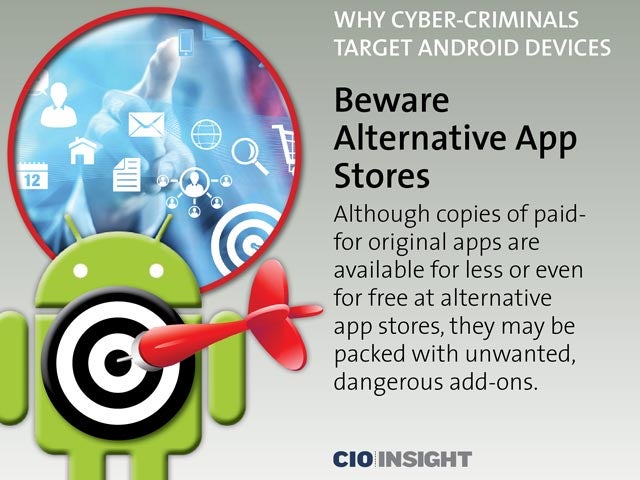 Beware Alternative App Stores
Beware Alternative App Stores
Although copies of paid-for original apps are available for less or even for free at alternative app stores, they may be packed with unwanted, dangerous add-ons.